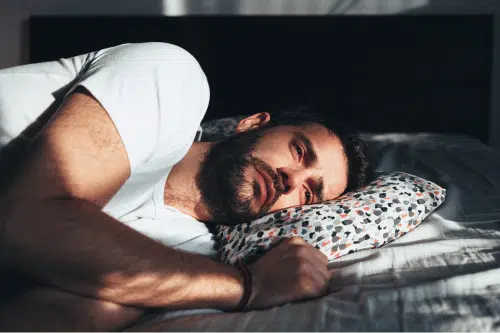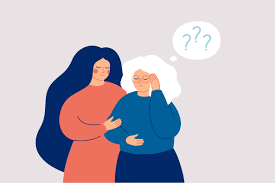How Anxiety Can Affect Your Sleep Patterns and Ways to Find Relief

Anxiety can disrupt a person’s sleep, leading to difficulty falling asleep, staying asleep, or experiencing restful sleep. For those dealing with this condition, these disruptions can create a frustrating cycle, with sleeplessness potentially intensifying feelings of unease. Here is more information on how anxiety affects sleep:
Linking Anxiety and Sleep Disruptions
Anxiety has a direct impact on the nervous system, putting the body into a heightened state of alertness, which is counterproductive for sleep. This state can make it difficult for both the mind and body to wind down at the end of the day. It can create a recurring cycle of insomnia, stress, and worry.
Some specific ways anxiety disrupts sleep include recurring anxious thoughts that keep the mind active, causing delays in falling asleep. Night waking, driven by feelings of unease or worry, may prevent a person from entering deeper, more restorative stages of sleep. Over time, irregular sleep patterns may develop, which can amplify the challenges of managing daily stressors and maintaining mental focus.
Understanding Long-Term Effects
Chronic anxiety can contribute to more significant sleep disorders. Insomnia often arises when the sleep-wake cycle is consistently disrupted. Persistent worries or physical symptoms of anxiety, such as a racing heart or tense muscles, can make this condition harder to resolve.
Sleep disturbances associated with anxiety can also interfere with REM sleep, the stage responsible for dreaming and emotional processing. Reduced time spent in this critical phase may hinder the brain’s ability to process emotions effectively, potentially deepening feelings of anxiousness. The lack of sleep may heighten the physical effects of anxiety, such as fatigue, difficulty concentrating, and irritability, creating a feedback loop that exacerbates both conditions.
Managing Anxiety to Improve Sleep
There are practical strategies that can help mitigate the impact of anxiety on sleep. Establishing a consistent sleep routine can be beneficial. Going to bed and waking up at the same time every day creates regularity, signaling to the brain when it’s time to prepare for rest. Relaxation techniques, such as deep breathing exercises, progressive muscle relaxation, and mindfulness meditation, can help calm the mind before bed. These actions lower physical tension and ease the mental chatter that often accompanies anxiety.
Limiting stimulants like caffeine or high-sugar foods during the afternoon and evening hours is another useful strategy. Creating an environment conducive to sleep, such as reducing noise and light and maintaining a cool room temperature, can make sleeping easier. Regular exercise reduces tension and supports better sleep by regulating the body’s internal clock. Activities like yoga or walking are helpful options to maintain balance and promote relaxation.
Addressing anxiety directly might require additional support. Seeking help from a professional can provide approaches or tools tailored to an individual’s needs. Therapies such as cognitive-behavioral therapy or mindfulness-based techniques have shown effectiveness in managing anxiety and sleep disturbances.
Get Mental Health Support
Anxiety and sleep challenges often go hand-in-hand, creating a cycle that can feel difficult to break. By understanding the connection between anxiety and sleep patterns, individuals can implement strategies to support better rest. Small, consistent adjustments to bedtime routines, stress management techniques, or physical activity can create a foundation for restorative sleep. If you experience difficulty sleeping due to anxious cycles, consult with a mental health professional to get help.
- What to Expect When Visiting a Foot and Ankle Specialist
- Causes of PTSD
- The Link Between Plantar Fasciitis and Weight Gain: What You Need to Know
- How Pet Ownership Can Positively Impact Life with Fibromyalgia
- The Importance of Stretching and Flexibility in Sports Medicine
Dr. Emma Green is a health and wellness expert with over 10 years of experience in nutrition and fitness. Passionate about helping others live their healthiest lives, Dr. Green shares practical advice on wellness, nutrition, and sustainable living through LivingSpristine.






